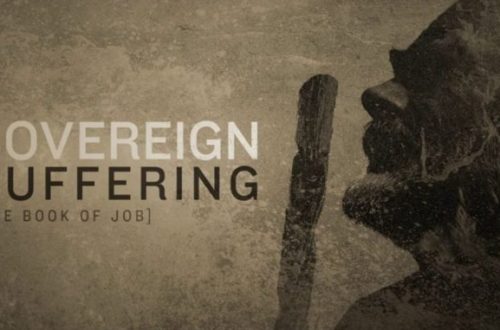
Why Dihydrogen Monoxide (DHMO) Immersion?
Is this some new treatment with the promise of youthful skin, wrinkle reduction, weight loss, and/or hair loss reversal? Does DHMO come from a plant that until recently was only known to indigenous tribes deep in the world’s jungles? Can it make you wealthy, healthy, and wise from simple immersion in it? If we “but wait,” can we obtain twice the product amount at the cost of a single product? “Stay tuned” to this blog article for more information on this exciting discovery that can revolutionize your life!
Dihydrogen Monoxide (DHMO) is a colorless and odorless chemical compound, referred to by some as Dihydrogen Oxide, Hydrogen Hydroxide, Hydronium Hydroxide, or simply Hydric acid. To know what DMHO is, we can analyze the term “dihydrogen monoxide.” The prefix “di-” in dihydrogen means “two,” the prefix “mon-” in monoxide means “one,” and oxide is a compound that contains one or more oxygen atoms. This means a molecule of DHMO has two hydrogen atoms and one oxygen atom consistent with its molecular formula. That is, DHMO has a chemical formula of H2O. Ok, you guessed it, DHMO is simply another name for water! Water is the transparent and nearly colorless chemical substance that is the main constituent of Earth’s streams, lakes, and oceans and the fluids of most living organisms.
Consequently, this article is about water immersion. The picture with this article is of a water immersion taking place in the Philippines. (2) Apparently, the only container that would hold this precious individual was a repurposed drum for water immersion. So, why were they immersing this person in water? Perhaps it would be more obvious, similar to water vs. DHMO, if I called it water “baptism” instead of water “immersion.”
The word baptism is not the translation but the English letter equivalent (i.e., transliteration) of the Greek word bapitisma, the verb of the same lemma being baptizo. It has no native meaning in the English language and must derive its meaning from the Greek word of which it is the spelling.
Old Covenant Example
Old Testament examples include Koine (i.e., common) Greek words from the Septuagint or LXX, an early Greek translation of the Hebrew Old Testament.
The priest must dip [baptizo] his finger in the blood and sprinkle [rantizo] some of it seven times before the LORD toward the front of the veil-canopy of the sanctuary (Leviticus 4:6 NET)
The first reference to the action of immersing the finger into the blood, and the second, speaking of the ritualism of sprinkling that blood.
New Covenant Examples
New Testament examples include Koine (Common) Greek words from the Greek New Testament:
They served only for matters of food and drink and various washings [baptismos]; they are external regulations imposed until the new order came. (Hebrews 9:10 NET)
And when they come from the marketplace, they do not eat unless they wash [baptizo]. They hold fast to many other traditions: the washing [baptismos] of cups, pots, kettles, and dining couches.) (Mark 7:4 NET)
So he called out, 'Father Abraham, have mercy on me, and send Lazarus to dip [bapto] the tip of his finger in water and cool my tongue, because I am in anguish in this fire.' (Luke 16:24 NET)
But when he saw many Pharisees and Sadducees coming to his baptism [baptisma], he said to them, "You offspring of vipers! Who warned you to flee from the coming wrath? (Matthew 3:7 NET)
At that hour of the night he took them and washed their wounds; then he and all his family were baptized [baptizo] right away. (Acts 16:33 NET)
And this prefigured baptism [baptisma], which now saves you– not the washing off of physical dirt but the pledge of a good conscience to God– through the resurrection of Jesus Christ, (1 Peter 3:21 NET)
The usage of the word baptizo as used in these verses yields the following definition in its mechanical meaning: “the introduction or placing of a person or thing into a new environment or into union with something else to alter its condition or its relationship to its previous environment or condition.” That is the usage in the following verse:
Therefore we have been buried with him through baptism [baptisma] into death, in order that just as Christ was raised from the dead through the glory of the Father, so we too may live a new life [zoe](4). (Romans 6:4 NET)
This verse refers to the act of God introducing a believing sinner into vital union with Jesus Christ so that the believer might have the power of his sinful nature broken and the divine nature imparted through their identification with Christ in His death, burial, and resurrection. Thereby altering the condition and relationship of that sinner concerning his previous state and environment, bringing them into a new environment, the Kingdom of God!
That is, God placed us positionally in Christ when He died so that we might share in His death and thus be separated from the evil nature as part of the salvation we receive when we believe. We were taken out of the old environment of the first Adam where we were sinners and placed in the environment of the second and most importantly, LAST Adam – Jesus the Christ, thus becoming saints! (1 Corinthians 15:45) Last Adam, meaning there will never be a need for a third, fourth, etc. Adam in the future, as Jesus Christ has solved the sin problem and all of its ramifications once and for all! Hallelujah!
This change of spiritual environment is the same thing that is meant by the Apostle Paul in the following verses:
He delivered us from the power of darkness and transferred us to the kingdom of the Son he loves, (Colossians 1:13 NET)
Having been buried with him in baptism, you also have been raised with him through your faith in the power of God who raised him from the dead. And even though you were dead in your transgressions and in the uncircumcision of your flesh, he nevertheless made you alive with him, having forgiven all your transgressions. He has destroyed what was against us, a certificate of indebtedness expressed in decrees opposed to us. He has taken it away by nailing it to the cross. Disarming the rulers and authorities, he has made a public disgrace of them, triumphing over them by the cross. (Colossians 2:12-15 NET)
Again, we were placed or baptized into Christ by God the Holy Spirit (1) so that we might share in Jesus’ death and thus be separated from the evil nature within us. However, note that Paul in the book of Romans says that the sinful nature within us is dead but not annihilated when we are saved. The Bible teaches that the sinful nature remains in the believer until he dies; however, we are not “in it” in the sense we are in its grip. (1 John 1:8) God in salvation breaks the power of the sinful nature over the believer and separates us from it. There has been a definite cleavage, a disengagement of the person from the evil nature. That is, the evil nature is a dethroned monarch. Before salvation, the evil nature was the master of the individual, but after salvation, the believer is its master! (Genesis 4:7)
However, God leaves it within us as a disciplinary measure. When a believer refuses to obey the incessant demands of the sinful nature, they glorify God, defeat Satan in their lives, and grow more spiritually mature. (1)
Through these things, he has bestowed on us his precious and most magnificent promises, so that by means of what was promised you may become partakers of the divine nature, after escaping the worldly corruption that is produced by evil desire. (2 Peter 1:4 NET)
But in addition to having the power of sin disconnected from us, we were placed in Christ Jesus so that we might share in His resurrection and thus have His divine life (zoe)(4) imparted to us. This divine life here does not refer to a new quality of experience or conduct but to a new quality of life imparted to the believer. That is, this newness of life in this verse does not refer to a new kind of life the believer is to live (i.e., the effect) but to a new source of ethical and spiritual energy imparted by God the Holy Spirit (1) through which the believer is empowered (i.e., the cause). We are empowered by this new source of ethical and spiritual life to hate sin and love righteousness and gives the believer both the desire and the power to do God’s will (Philippians 2:12,13).
Again, we are disengaged from the evil nature, separated from it, no longer compelled to obey it. Before salvation, we were not free to choose between good and evil enslaved to the evil fallen nature. However, the Christian’s will has been made absolutely free! After salvation, our will is poised between the evil nature and the divine nature, with the responsibility to reject the constant demands of the former and obey the exhortations of the latter. Therefore, it is a matter of breaking the bad habit of saying YES to the evil nature and forming the good habit of saying NO to the evil nature and YES to the good nature. To constantly say NO to the evil nature and YES to the good nature becomes a habit (i.e., we leave the evil nature buried), and then the victorious Christian life has been reached!
When a believer begins to see the truth portrayed by water baptism, they have isolated the fallen nature, identified it in its proper character, and has within their grasp the cure for it. (1) It is always the unknown enemy that is hard to fight. The Christian who has not isolated the evil nature fights sin in the dark, and is ignorant that the sin nature is no longer their master, he continues to obey it more or less because he has no knowledge of how to gain victory over it. (5)
Why Should Christians be Baptized?
Because Jesus the Sovereign Lord commanded it:
Therefore go and make disciples of all nations, baptizing them in the name of the Father and the Son and the Holy Spirit, teaching them to obey everything I have commanded you. And remember, I am with you always, to the end of the age." (Matthew 28:19,20 NET)
Jesus set the example of being baptized. However, Jesus’ baptism represented His becoming the atoning sacrifice for the original sin (1) and resulting sins of all the world as the Lamb of God:
On the next day John saw Jesus coming toward him and said, "Look, the Lamb of God who takes away the sin of the world! (John. 1:29 NET)
Now when all the people were baptized, Jesus also was baptized. And while he was praying, the heavens opened, and the Holy Spirit descended on him in bodily form like a dove. And a voice came from heaven, "You are my one dear Son; in you I take great delight." (Luke 3:21-22 NET)
and he himself is the atoning sacrifice for our sins, and not only for our sins but also for the whole world. (1 John 2:2 NET)
Baptism was taught and practiced by Jesus’ Disciples (the Apostles):
Peter said to them, "Repent, and each one of you be baptized in the name of Jesus Christ for the forgiveness of your sins, and you will receive the gift of the Holy Spirit. For the promise is for you and your children, and for all who are far away, as many as the Lord our God will call to himself." (Acts 2:38,39 NET)
Is Water Immersion (i.e., Baptism) required for salvation?
Baptism was not essential for the thief on the cross for entrance into Paradise:
Then he said, "Jesus, remember me when you come in your kingdom." And Jesus said to him, "I tell you the truth, today you will be with me in paradise." (Luke 23:42,43 NET)
Note in verses immediately below that believing and being baptized appear to make both a requirement for salvation. However, the omission of “baptized” with “does not believe” logically seems to show that Jesus does not make baptism essential to salvation. Condemnation results from disbelief, not on baptism, which agrees with John 3:16-18.
The one who believes and is baptized will be saved, but the one who does not believe will be condemned. (Mark 16:16 NET)
For this is the way God loved the world: He gave his one and only Son, so that everyone who believes in him will not perish but have eternal life. For God did not send his Son into the world to condemn the world, but that the world should be saved through him. The one who believes in him is not condemned. The one who does not believe has been condemned already, because he has not believed in the name of the one and only Son of God. (John 3:16-18 NET)
If Baptism was a requirement for salvation (i.e., if the salvation experience took place due to the “magic” in the water), then likely Jesus would have baptized converts; however, He did not baptize anyone as recorded in the scriptures.
Now when Jesus knew that the Pharisees had heard that he was winning and baptizing [baptizo] more disciples than John (although Jesus himself was not baptizing [baptizo], but his disciples were), (John 4:1,2 NET)
The Apostle Paul also did not perform all of the water baptisms in his ministry to the Gentiles:
Now I mean this, that each of you is saying, "I am with Paul," or "I am with Apollos," or "I am with Cephas," or "I am with Christ." Is Christ divided? Paul wasn't crucified for you, was he? Or were you in fact baptized [baptizo] in the name of Paul? I thank God that I did not baptize [baptizo] any of you except Crispus and Gaius, so that no one can say that you were baptized [baptizo] in my name! (1 Corinthians 1:12-15 NET)
Nevertheless, those that love their Lord Jesus should desire to demonstrate this publically by obeying His command to be baptized:
"Why do you call me 'Lord, Lord,' and don't do what I tell you? (Luke 6:46 NET)
"If you love me, you will obey my commandments. (John 14:15 NET)
Whoever, then, acknowledges me before people, I will acknowledge before my Father in heaven. But whoever denies me before people, I will deny him also before my Father in heaven. (Matthew 10:32-33 NET)
"I tell you, whoever acknowledges me before men, the Son of Man will also acknowledge before God's angels. But the one who denies me before men will be denied before God's angels. (Luke 12:8-9 NET)
For if anyone is ashamed of me and my words in this adulterous and sinful generation, the Son of Man will also be ashamed of him when he comes in the glory of his Father with the holy angels." (Mark 8:38 NET)
In addition, water baptism is the sign of being covered by the New Covenant even as circumcision was the sign of being covered by the Abrahamic Covenant (Genesis 17:10-14), and the Sabbath was the sign of being covered by the Mosaic Covenant (Exodus 31:12,13,17 (cf. Ezekiel 20:10-12).
In him you also were circumcised– not, however, with a circumcision performed by human hands, but by the removal of the fleshly body, that is, through the circumcision done by Christ. Having been buried with him in baptism, you also have been raised with him through your faith in the power of God who raised him from the dead. And even though you were dead in your transgressions and in the uncircumcision of your flesh, he nevertheless made you alive with him, having forgiven all your transgressions. (Colossians 2:11-13 NET)
Summary
Water Baptism provides a physical picture of the following spiritual truth: The power of the evil nature is broken, the believer does not have to sin, and since the divine nature is implanted, the believer does not want to sin, and has both the desire and the power to live a life pleasing to God. Furthermore, all Christians should desire to be publically immersed (i.e., baptized) as a public confession of their entering into a covenantal relationship with God by accepting Jesus Christ as their personal Lord and Savior. However, if you can’t be baptized like the thief on the cross, then the lack of baptism will not prevent you from being saved and being with our Lord Jesus upon your departure from this fallen world. Indeed, this DHMO immersion discovery can revolutionize your life when combined with the absolutely free gift of salvation through the Lord Jesus Christ!
For by grace you are saved through faith, and this is not from yourselves, it is the gift of God; it is not from works, so that no one can boast. (Ephesians 2:8,9 NET)
Discipleship for New Christians
- Why Dihydrogen Monoxide (DHMO) Immersion?
- Remember Jesus!
- United in Spirit
- Focus on Conformance, not Performance!
- Living in Harmony with the Holy Wind
- Religious Folklore – Christians can Misplace Their Salvation
- That’s How You Know!
- WDGG? How to make GOoD Decisions!
Shalom
(Security, Wholeness, Success)
Peace
Then he said to them, “Therefore every expert in the law who has been trained for the kingdom of heaven is like the owner of a house who brings out of his treasure what is new and old.” (Matthew 13:52 NET)
(1) Select the link to open another article with additional information in a new tab.
2) A picture with the title of “Baptism” obtained from the internet with no copyright.
3) Some other verses that contain the word baptizo: Matthew 3:6, 11, 13, 14, 16; 28:19; Mark 1:4,5, 8,9; 6:14, 24; 7:4; 10:38,39; 16:16; Luke 3:7, 12, 16, 21; 7:29,30; 11:38; 12:50; John 1:25,26, 28, 31, 33; 3:22,23, 26; 4:1,2; 10:40; Acts 1:5; 2:38, 41; 8:12,13, 16, 36, 38; 9:18; 10:47,48; 11:16; 16:15, 33; 18:8; 19:3-5; 22:16; Romans 6:3; 1 Corinthians 1:13-17; 10:2; 12:13; 15:29; Galatians 3:27
4) The Greek word here is “zoe,” not “bios”. Bios is the biological life we live on Earth, where “zoe” is the life of God in Heaven! Jesus came to fully give us the God kind of life of Heaven – while we are still on Earth! Remember, if God takes away it is only to add more (i.e., He prunes us, John 15:2).
If we want to know what the New Testament means by “life,” we need to look at the word as it appears in the original Greek language. In the Greek language, three different words—bios, psuche, and zoe—are translated as “life” in English, and each has a different meaning. Here are some examples of where each is used:
a. Bios, in Luke 8:14: “…anxieties and riches and pleasure of this life.” This Greek word refers to the life of the physical body and is where we get the word biology. (Strong’s #979)
b. Psuche, in Matt. 16:25: “For whoever wants to save his soul-life shall lose it.” The Greek word here refers to the psychological life of the human soul, that is, the intellect, emotion, and will. It is where we get the word psychology. (Strong’s #5590)
c. Zoe, in John 1:4: “In Him was life, and the life was the light of men.” Here, the Greek word refers to the uncreated, eternal life of God, the divine life uniquely possessed by God. (Strong’s #2222)
5) Wuest’s Word Studies From the Greek New Testament for the English Reader, Volume Three, The Believer and the Isolation of the Evil Nature, pp. 75-94, Kenneth S. Wuest, Reprinted 1999, ISBN-13: 978-0802822802 Wuest’s Word Studies From the Greek New Testament for the English Reader, Volume One, Romans Chapter Six, pp. 90-112, Kenneth S. Wuest, Reprinted 1999, ISBN-13: 978-0802822802



